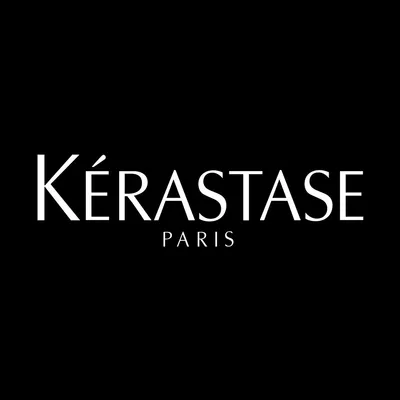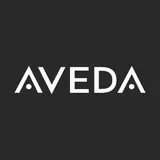
Kérastase
Learn more about our scoring →
About Kérastase
Kérastase represents the pinnacle of luxury professional haircare, combining six decades of French expertise with advanced scientific research to deliver salon-level treatments for every hair concern. As L'Oréal's flagship premium haircare brand, Kérastase occupies a unique position in the professional beauty market, bridging the gap between high-performance formulations and accessible luxury through partnerships with professional stylists worldwide.
The brand's sustainability journey reflects both significant environmental innovation and complex challenges inherent to luxury beauty manufacturing. Kérastase demonstrates leadership in operational sustainability through its Spanish production facility's renewable energy adoption and pioneering water recycling systems, while simultaneously advancing packaging circularity with refillable formats and recycled plastic integration that sets new industry standards for premium haircare.
As part of L'Oréal's broader sustainability transformation, Kérastase benefits from the parent company's extensive research capabilities and supply chain scale, though the brand's global distribution requirements and adherence to regulatory frameworks that permit animal testing where legally mandated create particular tensions around animal welfare policies that distinguish it from cruelty-free beauty alternatives.
The Good Stuff
Where Kérastase appears to be making meaningful progress. We cross-referenced these findings with multiple independent sources.
Closed-Loop Water Innovation
Burgos production facility achieves 100% process water recycling through advanced 'waterloop' technology, saving 32 million liters annually while maintaining premium product quality standards
Carbon-Conscious Manufacturing
Production facility operates entirely on renewable energy with documented significant CO₂ emission reductions, demonstrating measurable climate action within luxury beauty manufacturing
Circular Packaging Leadership
Pioneering refillable pouch systems reduce plastic consumption by 82% per refill, while retail bottles utilize 100% recycled plastic content, setting new standards for premium haircare packaging
The Reality Check
Areas where the publicly available data gets murky, incomplete, or concerning. We're transparent about the limitations of our analysis.
Animal Testing Policy Limitations
Allows animal testing where legally required as confirmed by independent authorities, preventing eligibility for major cruelty-free certifications and limiting appeal to ethically-conscious consumers
Labor Standards Verification Gap
Relies on parent company L'Oréal's supplier code compliance rather than independent third-party labor certifications or brand-specific social impact programs
Biodiversity Program Absence
No brand-level biodiversity conservation initiatives or wildlife protection funding disclosed, despite parent company's significant environmental investment programs
Kérastase's
Impact Aura
A visual representation of Kérastase's positive impact
across People, Planet and Animals
Each colored area represents the brand's performance in that sustainability category. The size and intensity of each blob corresponds to their score—larger, more vibrant areas indicate stronger performance.
Our Research
Key findings from our comprehensive analysis of Kérastase's sustainability performance across People, Planet & Animals impact.
Positive Impact on People
Research Highlights
- Ingredient safety protocols include traceable and sustainably sourced ingredients across core product ranges
- L'Oréal's supplier audit systems ensure ingredient integrity through established quality and safety protocols
- Labor standards compliance at parent company level requires adherence to International Labour Organization standards via supplier code, though no independent brand-level certifications are disclosed
- Supply chain traceability strengthened through TRASCE alliance membership for enhanced transparency
- Marketing integrity demonstrates clear sustainability communications with no reports of misleading environmental claims
Evidence Strength
Strong documentation for ingredient safety and supply chain initiatives, limited independent verification for labor practices with reliance on parent company self-reporting rather than brand-specific third-party audits
Positive Impact on Planet
Research Highlights
- Burgos production facility operates on 100% renewable energy with significant CO₂ emission reductions achieved
- Water stewardship excellence through closed-loop 'waterloop' system recycling 100% of process water, saving 32 million liters annually
- Packaging innovation includes 100% recycled plastic bottles, refillable pouches reducing plastic use by 82% per refill
- Sustainable ingredient sourcing with 63% renewable raw materials in new formulations across L'Oréal portfolio
- Biodiversity initiatives limited with no brand-specific habitat restoration or wildlife conservation programs disclosed
Evidence Strength
Excellent documentation for climate action, water management, and packaging innovation with verified metrics, gaps in biodiversity program verification
Positive Impact on Animals
Research Highlights
- Animal testing policy explicitly allows testing where legally required, preventing cruelty-free certification eligibility across all major standards
- Vegan product availability severely limited due to animal testing policies that disqualify products from vegan certification
- Wildlife conservation support through L'Oréal's €50 million Fund for Nature Regeneration, though no brand-specific programs identified
- Sustainable sourcing initiatives promote traceable, ethical ingredient procurement as part of sustainability commitments
- Conservation partnerships lack brand-level disclosure despite parent company biodiversity investment programs
Evidence Strength
Clear documentation from multiple independent authorities (PETA, Ethical Elephant) confirming animal testing policies and absence of cruelty-free certification, limited brand-specific wildlife or conservation program verification
See the Receipts
We don't just make claims—here are the official certifications that prove Kérastase's sustainability commitments.
Frequently Asked Questions
Is Kérastase sustainable?
Kérastase demonstrates strong environmental performance through renewable energy manufacturing, innovative water recycling, and circular packaging initiatives, while facing significant challenges in animal welfare policies that prevent cruelty-free certification. Our assessment shows leadership in climate action and packaging innovation, with gaps in biodiversity conservation and independent labor verification.
Is Kérastase cruelty-free?
Kérastase is not certified cruelty-free and allows animal testing where legally required, as confirmed by multiple independent authorities including PETA and Ethical Elephant. The brand does not meet standards for major cruelty-free certifications, limiting options for consumers prioritizing animal welfare in their beauty purchases.
Does Kérastase have refillable products?
Kérastase offers innovative refillable pouch systems that reduce plastic consumption by 82% per refill compared to traditional packaging. This refillable format represents significant progress in circular packaging design for premium haircare products.
Is Kérastase carbon-conscious?
Kérastase demonstrates strong carbon consciousness through its Burgos facility's 100% renewable energy operations and documented CO₂ emission reductions. The brand's manufacturing approach reflects meaningful climate action within the luxury beauty sector.
What makes Kérastase environmentally responsible?
Environmental responsibility at Kérastase centers on operational excellence including renewable energy manufacturing, closed-loop water recycling saving 32 million liters annually, and industry-leading recycled plastic packaging initiatives that set new standards for premium haircare sustainability.
Does Kérastase use sustainable ingredients?
Kérastase promotes traceable, ethical sourcing of key ingredients as part of sustainability commitments, with parent company L'Oréal reporting 63% renewable raw materials in new formulations, though specific brand-level sustainable ingredient metrics require further disclosure.
How does Kérastase compare to other luxury haircare brands for sustainability?
Kérastase leads in manufacturing sustainability and packaging innovation while allowing animal testing where legally required, unlike cruelty-free luxury alternatives. The brand's mixed performance reflects both the potential and challenges of implementing comprehensive sustainability within established luxury beauty frameworks that maintain global regulatory compliance.
Ready to Shop Kérastase?
Find Kérastase products through our trusted retail partners
The Bottom Line
Kérastase exemplifies the complex sustainability landscape of luxury beauty, delivering exceptional environmental innovation in manufacturing and packaging while maintaining animal testing policies where legally required that prevent cruelty-free certification. The brand's strong performance in climate action and circular design initiatives positions it as a leader in operational sustainability, though comprehensive ethical positioning remains limited by regulatory compliance frameworks that permit animal testing in certain markets.


